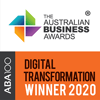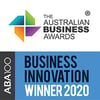Cognitive Computing
Cognitive computing:Cognitive computing is a branch of artificial intelligence that deals with creating computers that can simulate or replicate human thought processes. This includes tasks such as natural language processing, decision making, and pattern recognition.
Cognitive computing is an emerging field of computer science that seeks to bridge the gap between human and machine intelligence. Using natural language processing, cognitive computing systems enable machines to comprehend complex information from unstructured data sources. By leveraging sophisticated algorithms and artificial neural networks, these systems can accurately simulate many aspects of human cognition. This article will explore how cognitive computing works and its potential applications in various industries including healthcare, finance, energy management and more.
The advancement of technology has allowed for increased automation across a variety of industries with machines now performing tasks that were once thought impossible or too time consuming for humans. From providing insights into customer sentiment to improving operational efficiency, cognitive computers are revolutionising the way businesses operate. Through advances in deep learning techniques, they are able to detect patterns within large amounts of unstructured data faster than ever before.
In addition to supporting decision-making processes within organisations, cognitive computing has opened up new possibilities in research fields such as medicine and robotics. It provides researchers with powerful tools to gain insight on diseases, treatments and even robots that may be used in disaster relief efforts. With the ability to process vast amounts of data quickly and accurately, it's no wonder why so many businesses are looking towards cognitive computing as an effective solution for their needs.
Is Cognitive Computing The Same As AI?
Cognitive computing is a form of artificial intelligence that emulates the human cognitive abilities to process information and solve complex problems. It uses natural language processing, machine learning algorithms, expert systems, neural networks and sentiment analysis to create self-learning computer programs that can complete tasks autonomously. Through the use of these technologies, cognitive computing systems are capable of understanding large volumes of data and identifying patterns in order to provide more efficient solutions than traditional programming approaches.
When compared with other forms of Artificial Intelligence such as Machine Learning or Expert Systems, Cognitive Computing has distinct advantages due to its ability to take into account multiple sources of input from different areas like sensory perception or linguistic comprehension. This allows it to understand context better and increase accuracy when making decisions about future actions or predictions. Moreover, since this type of AI relies on learning algorithms instead of explicit coding instructions, it can adapt quickly to changing circumstances without needing significant manual intervention by humans. Additionally, through continuous feedback loops between machines and humans, improvements can be made over time thus leading to increased efficiency in the decision-making process.
As Cognitive Computing continues to evolve and become widely adopted across industries, organisations will have access to powerful insights which enable them make informed choices faster while reducing costs associated with manual labour for repetitive tasks. Furthermore, this technology also holds promise for improving customer experience as well as enhancing security measures related to authentication processes among others. All in all, Cognitive Computing promises great potential not only in terms of improved productivity but also in providing an enhanced quality of life for people by eliminating tedious labour intensive jobs from their daily routines.
What Is The Purpose Of Cognitive Computing?
Cognitive computing is a new model of artificial intelligence (AI) that enables computers to learn and problem-solve in ways similar to humans. It is used to analyse large amounts of data, web traffic, and other sources quickly and accurately - allowing for more efficient decision making. With the help of cognitive computing, AI powered machine learning models can be created which are able to provide actionable insights from big data.
These services make use of sophisticated algorithms and techniques like deep learning, natural language processing, computer vision and network analytics so that businesses can draw meaningful conclusions about their customers' behaviours and preferences from vast amounts of data. This has allowed companies to gain valuable insights into customer behaviour providing them with the ability to improve products/services based on real-time user feedback. In addition, cognitive computing also provides predictive analytics which enable businesses to anticipate potential risks or opportunities before they occur.
What Technology Is Used In Cognitive Computing?
Cognitive computing is an umbrella term for a range of technologies. These include eural networks, unstructured data, cognitive technology and engines, cognitive intelligence, pattern recognition, deep learning algorithms and applications that use human language to process data. The aim of cognitive computing systems is to mimic the way humans think by using artificial intelligence methods.
By utilising such techniques as machine learning and natural language processing (NLP), the system can understand complex information and generate insights from it in real time. Additionally, cognitive analytics helps organisations better categorise their structured and unstructured data sets so they can more accurately identify patterns within them. With advances in these areas, businesses are now able to gain valuable insight into customer behaviour and market trends that were previously unavailable.
Cognitive computing offers many benefits such as faster decision-making processes due to its ability to quickly analyse vast amounts of data at once; improved accuracy through its capability of recognising subtle or hidden relationships between different elements; increased efficiency with fewer resources needed for analysis; enhanced security with the elimination of manual input errors; and cost savings on labour costs associated with manually analysing large volumes of data. All these advantages make cognitive computing an important tool for any organisation looking to maximise their potential impact in today's competitive marketplace.
What Is Cognitive Computing In Education?
Cognitive computing is a form of artificial intelligence that attempts to simulate the human brain's thought process. It focuses on using cognitive services, such as deep learning and neural networks, to create automated customer interactions. By doing so, it allows AI-driven systems to understand natural language processing and better comprehend complex tasks. This has allowed many educational institutions to implement various forms of cognitive computing technologies in their curriculum with great success.
In education, cognitive computing models provide students with advanced access to data analysis tools which can be used for problem solving or decision making tasks at hand. Furthermore, these models have been utilised to help detect patterns in student behaviour over time through sentic computing algorithms. In addition, these same algorithms are being used by numerous universities across the world for creating personalised learning experiences based on individual needs and interests. Finally, this technology is helping educators gain insight into how students learn best and tailor instruction accordingly.
Cognitive computing technologies offer an unprecedented level of accuracy for analysing large datasets related to student performance outcomes compared to other more traditional methods of assessment. As such, they are increasingly becoming vital components of modern day educational systems due to their ability to quickly deliver precise results regarding student progress without sacrificing quality control standards or wasting valuable resources and time. All things considered, cognitive computing provides numerous benefits when applied in an educational setting while also providing a unique opportunity to enhance our understanding of the human thought process and how it relates to teaching practices today.
What Are Some Examples Of Cognitive Computing?
Cognitive computing is a form of artificial intelligence that enables machines to simulate human thought processes. This type of computing uses self-learning algorithms, deep learning systems and image processing to replicate the cognitive process of humans. It also utilises natural language processing and data mining in order to understand patterns and gain insights from large amounts of data.
Examples of cognitive computing include facial recognition technology, automated customer service chat-bots, intelligent search engines, virtual assistants like Alexa or Siri and autonomous vehicles. Facial recognition allows machines to recognise faces which they can then use for security purposes such as unlocking your phone with only your face scan. Automated customer service chat-bots provide support by responding quickly to inquiries without needing input from a person. Intelligent search engines are able to process millions of web pages to find information related to an inquiry within seconds. Virtual assistants like Alexa or Siri are voice activated programs used for tasks such as playing music or setting reminders. Autonomous vehicles utilise sensors combined with GPS navigation data in order to safely navigate on their own without any human intervention.
These examples demonstrate how far technology has come in terms of replicating some aspects of human intelligence through cognitive applications powered by artificial intelligence systems. As this field continues advancing at unprecedented rates due its wide range of potential applications, augmented cognition will become increasingly prevalent in society as new advances allow machines to more accurately mimic human thought processes.
Conclusion
Cognitive computing has the potential to revolutionise many aspects of our lives. It is an exciting new technology that holds great promise for a variety of applications, from education to healthcare and beyond. To truly understand cognitive computing, it is important to have an understanding of its purpose and how it works.
The purpose of cognitive computing is to enable machines to perform tasks which would normally require human intelligence. This includes such activities as learning, reasoning, problem-solving and decision-making. Technology used in this field includes natural language processing, machine learning and deep learning algorithms. Cognitive computing also finds application in educational settings, where it can be used to automate grading or provide personalised recommendations for students’ course selection.
Examples of cognitive computing include IBM Watson, Google's AI assistant Duplex, Apple's Siri and Microsoft's Cortana. These technologies are rapidly evolving into powerful tools with the ability to quickly process large amounts of data and make decisions based on them. As we move into a future driven by artificial intelligence, cognitive computing will play an increasingly important role in transforming industries across the globe.
PREVIOUS NARROW AI GLOSSARY TERM
Classification and regression trees
NEXT NARROW AI GLOSSARY TERM
Cognitive Computing Definition
Exact match keyword: Cognitive Computing N-Gram Classification: Artificial Intelligence, Machine Learning, Deep Learning Substring Matches: Computing, Cognitive Long-tail variations:"Artificial Intelligence", "Machine Learning", "Deep Learning" Category: Technology, Business Search Intent: Research, Solutions, Purchase Keyword Associations: Artificial Intelligence, Machine Learning, Deep Learning Semantic Relevance: Artificial Intelligence, Machine Learning, Deep Learning Parent Category: Technology Subcategories: Artificial Intelligence, Machine Learning, Deep Learning Synonyms: Artificial Intelligence, Machine Learning, Deep Learning Similar Searches: Natural Language Processing (NLP), Computer Vision (CV), Chatbots Geographic Relevance: Global Audience Demographics: Business Professionals, Programmers/Developers Brand Mentions : IBM Watson , Microsoft Azure , Google Cloud Industry-specific data : AI For Mobile Apps , Voice Search Optimization Commonly used modifiers : "business intelligence","customizable","real-time" Topically relevant entities : Natural Language Processing (NLP) ,Computer Vision (CV), Chatbots , AI for Mobile Apps ,Voice Search Optimization"Larry will be our digital expert that will enable our sales team and add that technological advantage that our competitors don't have."
Kerry Smith
CEO, PFD Foods
$1.6 billion in revenue 
"Lion is one of Australasia’s largest food and beverage companies, supplying various alcohol products to wholesalers and retailers, and running multiple and frequent trade promotions throughout the year. The creation of promotional plans is a complicated task that requires considerable expertise and effort, and is an area where improved decision-making has the potential to positively impact the sales growth of various Lion products and product categories. Given Complexica’s world-class prediction and optimisation capabilities, award-winning software applications, and significant customer base in the food and alcohol industry, we have selected Complexica as our vendor of choice for trade promotion optimisation."
Mark Powell
National Sales Director, Lion
"At Liquor Barons we have an entrepreneurial mindset and are proud of being proactive rather than reactive in our approach to delivering the best possible customer service, which includes our premier liquor loyalty program and consumer-driven marketing. Given Complexica’s expertise in the Liquor industry, and significant customer base on both the retail and supplier side, we chose Complexica's Promotional Campaign Manager for digitalizing our spreadsheet-based approach for promotion planning, range management, and supplier portal access, which in turn will lift the sophistication of our key marketing processes."
Richard Verney
Marketing Manager
Liquor Barons

"Dulux is a leading marketer and manufacturer of some of Australia’s most recognised paint brands. The Dulux Retail sales team manage a diverse portfolio of products and the execution of our sales and marketing activity within both large, medium and small format home improvement retail stores. We consistently challenge ourselves to innovate and grow and to create greater value for our customers and the end consumer. Given the rise and application of Artificial Intelligence in recent times, we have partnered with Complexica to help us identify the right insight at the right time to improve our focus, decision making, execution, and value creation."
Jay Bedford
National Retail Sales Manager
Dulux

"Following a successful proof-of-concept earlier this year, we have selected Complexica as our vendor of choice for standardizing and optimising our promotional planning activities. Complexica’s Promotional Campaign Manager will provide us with a cloud-based platform for automating and optimising promotional planning for more than 2,700 stores, leading to improved decision-making, promotional effectiveness, and financial outcomes for our retail stores."
Rod Pritchard
Interim CEO, Metcash - Australian Liquor Marketers
$3.4 billion in revenue 
"After evaluating a number of software applications and vendors available on the market, we have decided to partner with Complexica for sales force optimisation and automation. We have found Complexica’s applications to be best suited for our extensive SKU range and large set of customers, being capable of generating recommendations and insights without burdening our sales staff with endless data analysis and interpretation.
Aemel Nordin
Managing Director, Polyaire
"DuluxGroup is pleased to expand its relationship with Complexica, a valued strategic partner and supplier to our business. Complexica’s software will enable DuluxGroup to reduce the amount of time required to generate usable insights, increase our campaign automation capability, personalise our communications based on core metrics, and close the loop on sales results to optimise ongoing digital marketing activity."
James Jones
Group Head of CRM, DuluxGroup
"Instead of hiring hundreds of data scientists to churn through endless sets of data to provide PFD with customer-specific insights and personalised recommendations, Larry, the Digital Analyst® will serve up the answers we need, when we need them, on a fully automated basis without the time and manual processes typically associated with complex analytical tasks.”
Richard Cohen
CIO, PFD Foods
$1.6 billion in revenue 
"As a global innovator in the wine industry, Pernod Ricard Winemakers is always seeking ways to gain efficiencies and best practices across our operational sites. Given the rise of Artificial Intelligence and big data analytics in recent times, we have engaged Complexica to explore how we can achieve a best-in-class wine supply chain using their cloud-based software applications. The engagement is focused on Australia & New Zealand, with a view to expand globally."
Brett McKinnon
Global Operations Director, Pernod Ricard Winemakers
"70% - 80% of what we do is about promotional activity, promotional pricing -- essentially what we take to the marketplace. This is one of the most comprehensive, most complex, one of the most difficult aspect of our business to get right. With Complexica, we will be best in class - there will not be anybody in the market that can perform this task more effectively or more efficiently than we can."
Doug Misener
CEO, Liquor Marketing Group
1,400+ retail stores 
"The key thing that makes such a difference in working with Complexica is their focus on delivering the business benefits and outcomes of the project."
Doug Misener
CEO, Liquor Marketing Group
1,400+ retail stores 
"Australia needs smart technology and people, and it has been a great experience for me to observe Complexica co-founders Zbigniew and Matt Michalewicz assemble great teams of people using their mathematical, logic, programming, and business skills to create world-beating products. They are leaders in taking our bright graduates and forging them into the businesses of the future."
Lewis Owens
Chairman of the Board, SA Water 
"Having known the team behind Complexica for some years ago now, I am struck by their ability to make the complex simple - to use data and all its possibilities for useful purpose. They bring real intelligence to AI and have an commercial approach to its application."
Andrew McEvoy
Managing Director, Fairfax Media - Digital 
"I have worked with the team at Complexica for a number of years and have found them professional, innovative and have appreciated their partnership approach to delivering solutions to complex problems."
Kelvin McGrath
CIO, Asciano 
“Working with Complexica to deliver Project Automate has been a true partnership from the initial stages of analysis of LMG’s existing processes and data handling, through scoping and development phase and onto delivery and process change adoption. The Complexica team have delivered considerable value at each stage and will continue to be a valued partner to LMG."
Gavin Saunders
CFO, Liquor Marketing Group 
“Complexica’s Order Management System and Larry, the Digital Analyst will provide more than 300 Bunzl account managers with real-time analytics and insights, to empower decision making and enhanced support. This will create more time for our teams to enable them to see more customers each day and provide the Bunzl personalised experience.”
Kim Hetherington
CEO, Bunzl Australasia 
"The team behind Complexica develops software products that are at the cutting edge of science and technology, always focused on the opportunities to deliver a decisive competitive edge to business. It has always been a great experience collaborating with Matthew, Zbigniew and Co."
Mike Lomman
GM Demand Chain, Roy Hill Iron Ore 
"The innovations that the Complexica team are capable of continue to amaze me. They look at problems from the client side and use a unique approach to collaborating with and deeply understanding their customers challenges. This uniquely differentiates what they bring to market and how they deliver value to customers."
John Ansley
CIO, Toll Group 
"Rather than building out an internal analytics team to investigate and analyse countless data sets, we have partnered with Complexica to provide our sales reps with the answers they need, when they need them, on a fully automated basis. We are excited about the benefits that Larry, the Digital Analyst will deliver to our business.”
Peter Caughey
CEO, Coventry Group 
“Complexica’s Order Management System and Larry, the Digital Analyst will provide more than 300 Bunzl account managers with real-time analytics and insights, to empower decision making and enhanced support. This will create more time for our teams to enable them to see more customers each day and provide the Bunzl personalised experience.”
Kim Hetherington
CEO, Bunzl Australasia 
"After an evaluation process and successful proof-of-concept in 2016, we have chosen to partner with Complexica to upgrade the technological capability of our in-field sales force. The next-generation Customer Opportunity Profiler provided by Complexica will serve as a key tool for sales staff to optimise their daily activities, personalise conversations and interactions with customers, and analyse data to generate actionable insights."
Stephen Mooney
Group Sales Capability Manager, DuluxGroup
$1.7 billion in revenue
"After evaluating a number of software systems available in the marketplace, we have ultimately selected Complexica as our vendor of choice for sales force automation and CRM. Given the large SKU range we carry and very long tail of customers we serve, Complexica’s applications are best suited to deal with this inherent complexity without burdening our staff with endless data entry."
Nick Carr
CEO, Haircaire Australia
Australia's largest distributor of haircare products
“Asahi Beverages is Australia’s largest brewer, supplying a leading portfolio to wholesalers and retailers, including some of Australia’s most iconic brands. Last year Asahi Beverages acquired Carlton & United Breweries, which is its Australian alcohol business division. To harness the strength of our expanded portfolio, we partner with our customers to run multiple and frequent trade promotions throughout the year, delivering long-term growth for both our business and theirs. Given the inherent complexity in optimising promotional plans and our continued focus on revenue and growth management, we have selected Complexica as our vendor of choice after a successful Proof-of-Concept of its world-class optimisation capabilities.”
Kellie Barnes
Group Chief Information Officer
Asahi Beverages
"Dulux is a leading marketer and manufacturer of some of Australia’s most recognised paint brands. The Dulux Retail sales team manage a diverse portfolio of products and the execution of our sales and marketing activity within both large, medium and small format home improvement retail stores. We consistently challenge ourselves to innovate and grow and to create greater value for our customers and the end consumer. Given the rise and application of Artificial Intelligence in recent times, we have partnered with Complexica to help us identify the right insight at the right time to improve our focus, decision making, execution, and value creation."
Jay Bedford
National Retail Sales Manager, DuluxGroup
"At Liquor Barons we have an entrepreneurial mindset and are proud of being proactive rather than reactive in our approach to delivering the best possible customer service, which includes our premier liquor loyalty program and consumer-driven marketing. Given Complexica’s expertise in the Liquor industry, and significant customer base on both the retail and supplier side, we chose Complexica's Promotional Campaign Manager for digitalizing our spreadsheet-based approach for promotion planning, range management, and supplier portal access, which in turn will lift the sophistication of our key marketing processes."
Richard Verney
Marketing Manager, Liquor Barons


































